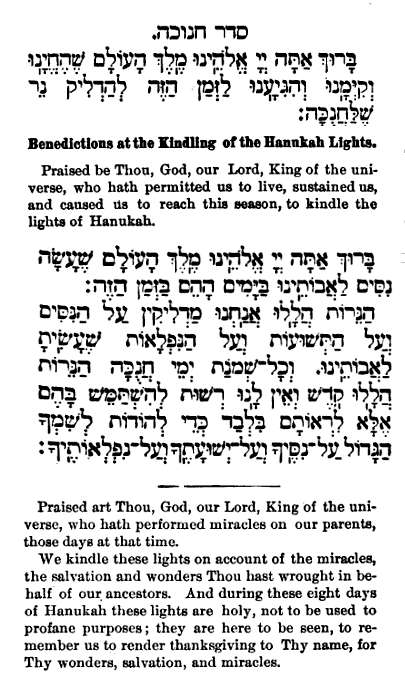
The first and third blessing are combined into one, with certain ideological omissions from the first. The objection is to the traditional formula's, invoking God's "command" of the act about to be performed - in this case, a practice ordained by the rabbis. Since there is nothing for the words "to kindle the lights of Hanukah" to hang on, the Shehecheyanu blessing is compounded to produce a new blessing.
This specific issue is addressed most cogently in Emanuel Schreiber's Reformed Judaism and its pioneers: A contribution to its history (1892) in his section on Gotthold Salomon. The quote below references a sermon the latter delivered in 1846:

Back to Minhag America - The major change in the הנרות הללו recitation is the omission of the reference to the role of כהניך הקדושים, God's sacred priests. Naturally the piyut מעוז צור is omitted entirely.





Did you notice he translation of bazman ahazeh
ReplyDeleteMidwest
Wait, so, they kind of have a point. ?
ReplyDeleteI wonder how intentional it was to combine shel and chanuka? These days, we might see that kind of thing with kin-eyan-hor-ah ("kinnehora"), mazal-tov ("mazeltov") and bar-mitzvah ("barmitzva")
ReplyDeleteThe combination of "shel" and "Chanukah" is not accidental. But it isn't something that was invented in America. Many have combined the two because, they claim, we don't find the word "shel" as a stand-alone word in Tanach. Thus to the extent that the liturgy must follow Biblical grammar conventions (itself a matter of huge debate), it is combined into one word.
ReplyDelete